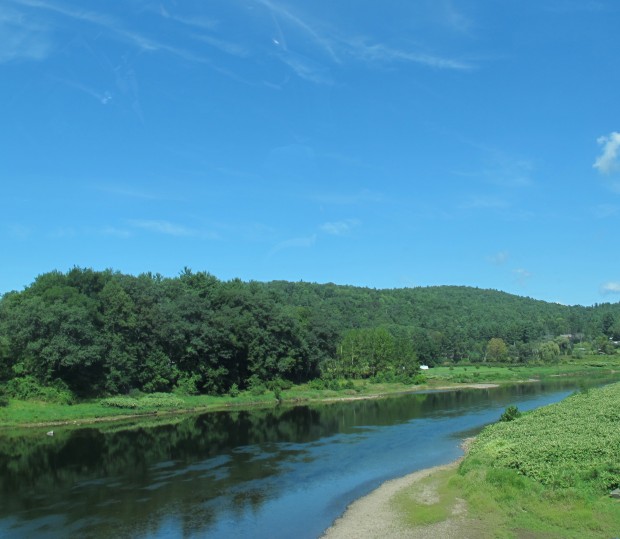Group intervenes to defend Delaware River Basin drilling moratorium

Katie Colaneri/StateImpact Pennsylvania
Water quality in the Delaware River Basin would be endangered if a regulator allows gas drilling in the region, an environmental group said in its intervention in a lawsuit.
A renewed fight over whether to allow natural gas drilling in the Delaware River Basin intensified when a leading environmental group joined a lawsuit defending a de facto moratorium on gas development in the region.
Delaware Riverkeeper Network (DRN) intervened on July 5 in the suit in which the Delaware River Basin Commission (DRBC) is defending its stance to determine whether any shale gas wells can be drilled in the basin, in response to a challenge by a group of Wayne County landowners.
The Wayne Land and Mineral Group (WLMG) sued DRBC in federal court in May, arguing that the interstate regulator does not have the authority to require the developer to submit its plans to build a well pad and drill a gas well on a property in Wayne County.
Maya van Rossum, who heads DRN, said the suit is the first legal challenge to the gas-drilling ban, which, though not official policy, has been in effect since 2010. The effective moratorium is seen by critics of the gas industry as an important holdout against the industry’s activities in the Marcellus Shale elsewhere in Pennsylvania.
“The WLMG lawsuit seeks to advance drilling and fracking in our watershed to the detriment of tens of millions who rely upon a healthy Delaware River system, and it does so by seeking to fundamentally disempower the DRBC and its ability to protect our water resources from such dangerous industrial operations,” van Rossum said in a statement.
She told StateImpact Pennsylvania that gas industry advocates previously threatened legal challenges to the DRBC based on the argument of “takings” – that the agency had unconstitutionally taken land without compensation – but that DRN had argued that the “takings” argument was not viable.
“It is interesting that when the suit was finally filed, it was not based on takings,” van Rossum said.
DRN and its allies argue that allowing gas drilling in the basin, which stretches from upstate New York to Delaware, would endanger drinking water supplies for some 15 million people in New York, New Jersey and Pennsylvania.
In its intervention, filed in U.S. District Court for the Middle District of Pennsylvania, DRN defended DRBC’s authority to regulate any gas drilling in the basin, and accused the landowners of trying to get around the DRBC’s “Compact”, a 1961 document setting out its duties to coordinate water management between the four basin states – New York, New Jersey, Pennsylvania and Delaware.
The environmental group called the suit “little more than an attempt by WLMG to make an end run around the requirements of the Compact and the protections that have been put in place to safeguard the water resources of the Basin.”
In May 2009, the commission decided that any gas drilling activity in the basin needed to be reviewed by the agency. The decision was based in part on concerns that hydraulic fracturing would jeopardize water quality in the river and its tributaries. A year later, representatives of the four states plus the federal government that make up the commission voted unanimously to hold off on any decisions regarding drilling in the basin until new regulations were adopted, effectively imposing a ban on gas drilling that still exists.
In response to DRN’s intervention, the DRBC reiterated a statement first issued after the suit was filed, saying it would defend its authority to regulate water quality in the basin.
“The DRBC is reviewing the claims in the lawsuit and intends to defend its authority under the Delaware River Basin Compact,” the regulator said.
David Overstreet, an attorney for the Wayne landowners, said he was studying DRN’s intervention, and had no immediate comment.
















